Duplicating Sam Rockwell, Riffing on 2001, and Bringing the Lunar Surface to Shepperton Studios for $5m or Less

All photography by Mark Tille, © Lunar Industries Ltd., courtesy of Sony Pictures Classics
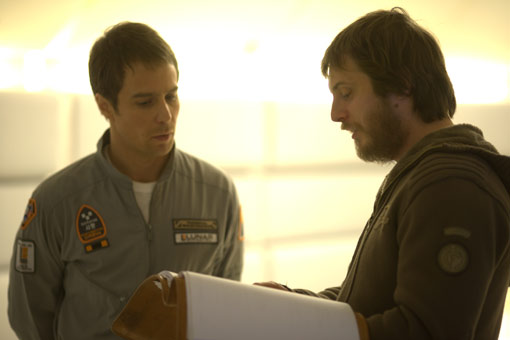
Actor Sam Rockwell (left) and director Duncan Jones
F&V: Did directing Sam Rockwell playing several incarnations of himself present any difficulties?
DJ: Well, there were technical difficulties. It was hard to get the effect to work in a way that went beyond what David Cronenberg did in Dead Ringers and Spike Jonze did in Adaptation. Then, there were the difficulties of performance: making Sam feel the differences between his two characters. I was very lucky. I had a producer who gave me a week of rehearsals in New York with Sam and an actor friend of his. We went over the script and broke down what Sam wanted to do and gave him the opportunity to differentiate between the two Sams.
I’d given myself a little bit of rehearsal in that I did a commercial for French Connection UK. It was a fight scene between two women. It was only about a year before I did the film. I thought, “One day I’m going to have to do a fight scene, and I’d like to get one under my belt before I make a film.” So I directed this scene for the commercial, which gave me a good understanding of how to shoot fight scenes.
Jones’s FCUK spot
When it came down to doing one for the film, I really worked closely with the fight coordinator. We came up with a scenario where we would be able to keep the camera quite close and disguise the action where we could. Sam was basically fighting against his stunt double most of the time. With a wig and costume, we were able to get away with quite a few shots. There’s a couple shots in that sequence where we added Sam’s face onto the stunt double in post-production. In order to save money, we only did that once or twice in the whole sequence. Most of it’s just clever camera angles.
Your lunar exteriors are quite convincing. How much of that is a real set, and how much is CGI?
It’s model miniatures. All the lunar exteriors were shot using that technique, which they used to do in the ‘70s and ‘80s. We had a soundstage in Shepperton Studio where we built a piece of lunar landscape, about 30 by 40 feet. We really made it look like the moon. We had these beautiful little miniature vehicles pulled across the landscape by fishing line and titanium wire. That’s basically the foundation of the visuals. We were able to expand upon it in post-production. We digitally created distance, star fields, lens flares and dirt being kicked up by the vehicles. The lens flares were a way of adding visual style to it , but it was also a way of camouflaging certain things.
How much was your budget?
About five million dollars. For a science fiction film, it’s not a lot.
How extensive was your use of CGI?
I can’t really give you a fraction, but we tried to capture as much in camera as possible. The interior of the base is entirely live action. We used CGI for a couple key moments where Gerty is moving around the base, because it was just too difficult to use physical props. For the lunar landscape, like I said, we used miniatures but did certain things with CGI.
How big was your set of the base?
It was amazing. It was a completely encompassing, 360-degree set of the entire base. We went in the airlock in the morning. Most of the lighting was built into the base itself, so when we were shooting, it was like being on location. No matter where the camera pointed, it was like being on the base.
Did your background in advertising affect your approach to filmmaking?
It was designed as my film school in some ways. I only became involved in advertising because my mentor, Tony Scott, suggested I go off and work in it. He told me that the more you work in advertising, the more experience you’ll have with working with crews and coming up with a budget, and that will put you in good stead when you’re ready to make a film. I took his advice. For me, it was an opportunity to get the skills I needed to make feature films. I needed it. I would never have been able to do this film without that experience.
Did you also make shorts or music videos?
I did a couple of low-budget music videos: nothing you would ever have seen. I did a few short films. One in particular, called “Whistle,” was about 26 minutes long. It’s also a near-future, science fiction film. It’s pretty good and played in the UK on TV. I’m hoping that maybe we can put it on the Moon DVD. I just have to get a few clearances. I’d like people to be able to see it.
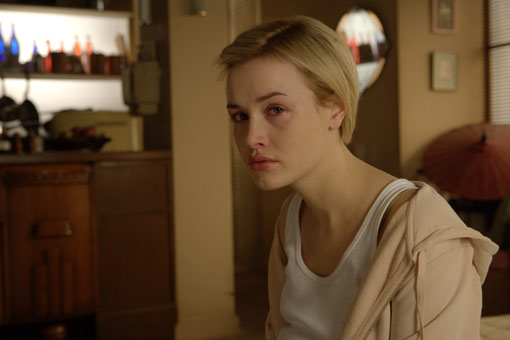
Actress Dominique McElligott
Moon has an emotional quality missing from recent sci-fi films. What attracts you to the genre?
A lot of science-fiction films these days are a string of special-effects set pieces. I miss those science fiction films which focused on people and storytelling, explaining how a human being survives and maintains their humanity in an alien environment or how their humanity is eroding away. Films like Outland, Silent Running and Alien did that. They were all about human beings and how they survived such scenarios. I wanted Moon to do that. The TV show Battlestar Galactica concentrated on people, but I don’t think that many recent feature films have done it.
Were you more influenced by literary or cinematic sci-fi?
A bit of both. There were several films from the ‘70s and ‘80s that were very influential and I wanted to pay homage. I was also a big reader of Philip K. Dick and J. G, Ballard, as well as George Orwell and John Wyndham when I was younger. I loved the way Ballard would tell a story that could be contemporary and find one element to tweak that would make it slightly otherworldly. It’s always about the person and how he’s affected by that change.
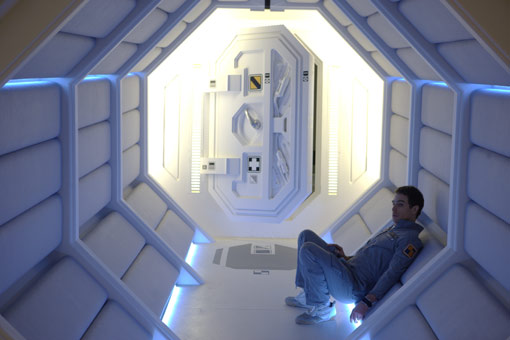
Were you afraid of coming too close to your influences? Although Gerty’s personality is quite different from HAL 9000, it’s hard to have a talking computer that doesn’t evoke HAL.
Absolutely. We pay homage to a lot of films and 2001 specifically. I could either have pretended HAL never happened and create my character of Gerty or I could do what we ended up doing: making that association and letting the audience bring their own assumptions. They’re going to see the iris eye and immediately think of HAL. I want them to do it. I want them to assume that Gerty will behave the same as HAL, because over the course of the film, you discover that Gerty’s very different personality-wise. That surprise is accentuated if you assume that he’s going to be like him.
Was it your idea to put the smiley face icon on the side of Gerty?
I use a lot of social networking sites. I’m on Twitter all the time. I use all these various forms of networking, including the text version of Skype. I tend to use smiley faces to make sure people know that I’m joking. That’s my own reason for using it on Gerty. I also like the idea that Gerty’s designed by this company which doesn’t have much respect for Sam and treats him in a patronizing way. So they use smiley faces to communicate with him.
Did you find it difficult to direct Kevin Spacey in a voice-only performance?
It was a unique challenge, because he’s a big-name actor with a huge amount of experience. He’s a director in his own right. He’s incredibly well-known, and I’m just a guy who’s making my first little film. So that’s intimidating. Fortunately, he’s a very nice man and a real professional. He’d read the script a few times and seen an offline cut of the film. We had a conversation on the day of the recording about who Gerty was and what his intentions are. I think Kevin nailed it. He understood the parallels with HAL. He really knew what he was doing, and I didn’t have to give him too much guidance. He knew he was there as a foil for Sam.
So you shot the film without knowing who was going to do Gerty’s voice?
Yes. I wanted Kevin Spacey, and he was a huge admirer of Sam’s. He was interested, but knowing our budget, he was concerned about how we were going to pull it off. He told us to go ahead and do it without him, and, after we finished the film, to show it. If he could confirm that the sets weren’t made out of shoe-boxes, he’d reassess it. When we showed him the rough cut, he was blown away by Sam Rockwell’s performance.
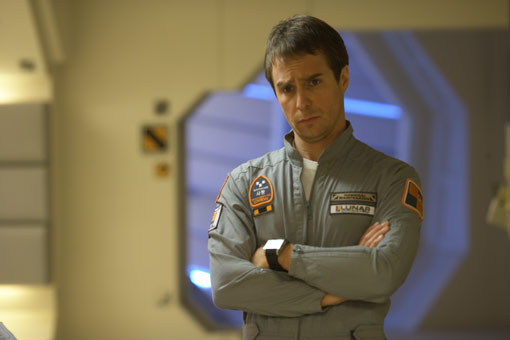
Did you write the story with Sam Rockwell in mind?
I met him about three years ago to talk about a different film. He’d been really keen on playing a different role than the one I wanted him to play. I met him in New York to try to convince him to play the role. We both had strong ideas, so that didn’t work out, but we got along incredibly well. I realized what a lovely man he was. I already knew he was an amazing actor, but at that point, I realized how great he’d be to work with. I decided then that if I couldn’t get this project off the ground, I would write something specifically for him. I knew he was the guy I wanted to do my first film with.
Where did the production money for Moon come from?
Mostly from the U.K. We got a good chunk of our budget there. Then with the concept artwork and Sam Rockwell attached, we talked to a number of companies. Sony Worldwide Acquisitions chipped in a percentage of the budget in exchange for rights for the English-language territories. That gave us the budget we needed to complete it.
Are you planning your next film now?
I have another script, which is the one I was initially talking to Sam Rockwell about. It’s also science fiction, but it’s Earth-based. It’s a thriller taking place in Berlin. That script has started going out to actors. I’m very excited. I co-wrote it with a guy named Mike Johnson, whom I went to film school with.
What aspect of filmmaking on Moon did you find most challenging?
Having to constantly make compromises and find solutions to problems because you don’t have enough money to do things exactly the way you wanted to. The difference between feature films and commercials is that with commercials, you can shoot something for as long as it takes to get it right. With feature films, you have to compromise all the time. You might only get three or four takes of a scene, because you have to move on.
Did you enjoy this article? Sign up to receive the StudioDaily Fix eletter containing the latest stories, including news, videos, interviews, reviews and more.
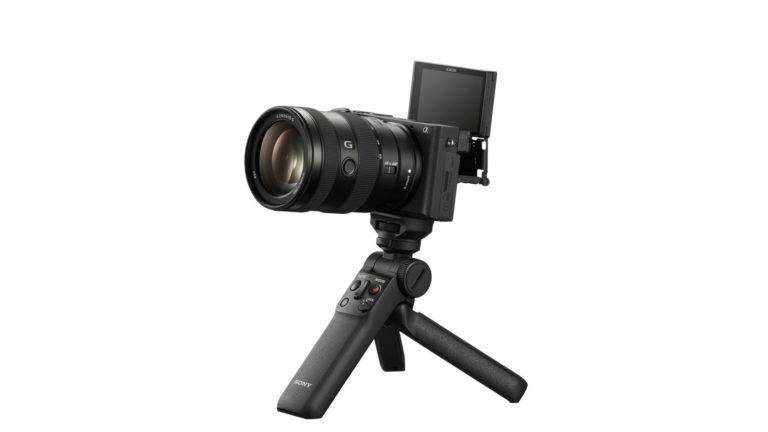

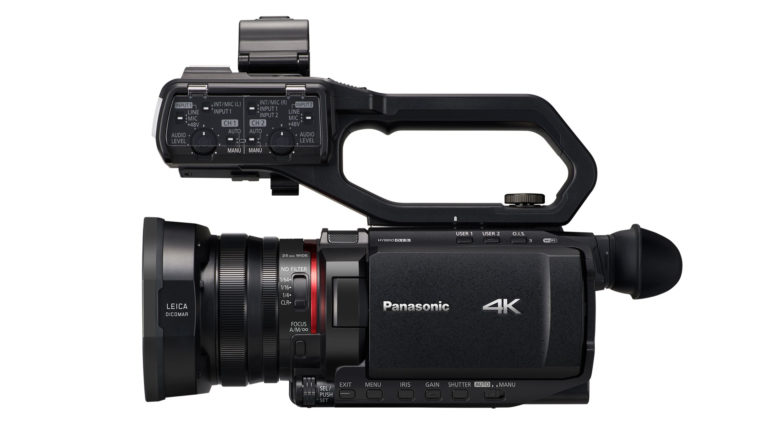





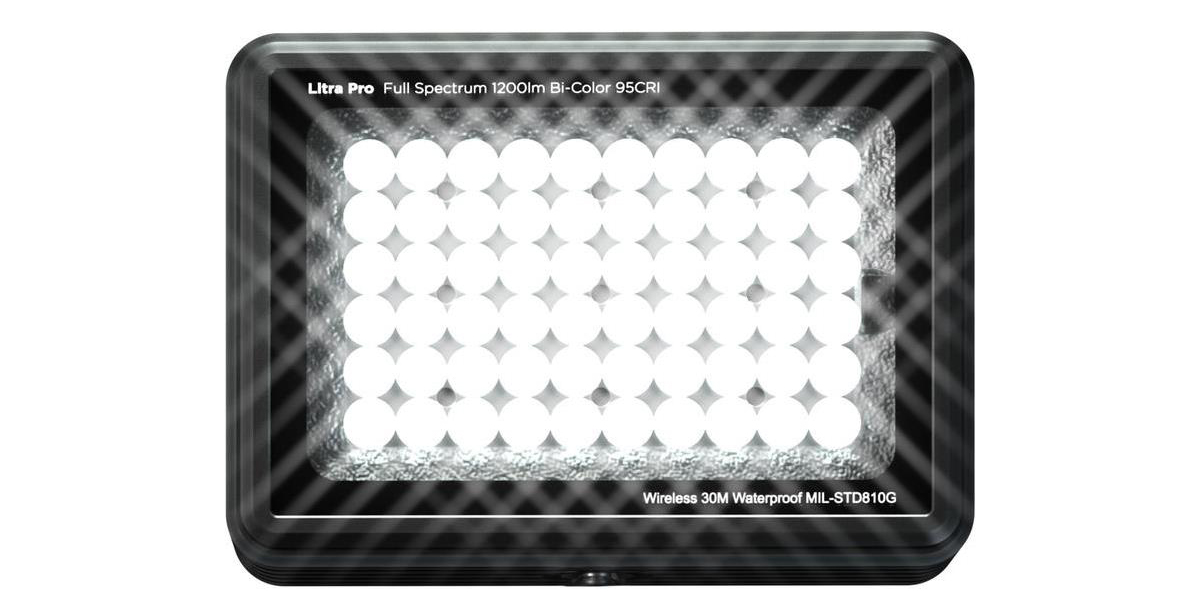
Leave a Reply